Ah, camping season in Colorado. Is there anything better? Colorado offers everything from front country car camping in developed campgrounds to true wilderness experiences that take days carrying your pack to get to.
There’s something about being away from home under Colorado’s gorgeous skies that rejuvenates the spirit and helps us manage the chaos of life back home.
Unfortunately, our camping habits can sometimes cause decidedly NON-rejuvenating stress to other people we might be camping near, as well as the land and its creatures. There are more and more people out there these days, so it’s really important that while we are out “re-creating” (recreating) ourselves, we don’t inadvertently cause harm to those around us.
We all love being out there but we are guests on the land. So here are some ideas for how to be the best camper you can be, for your neighbors and the environment.
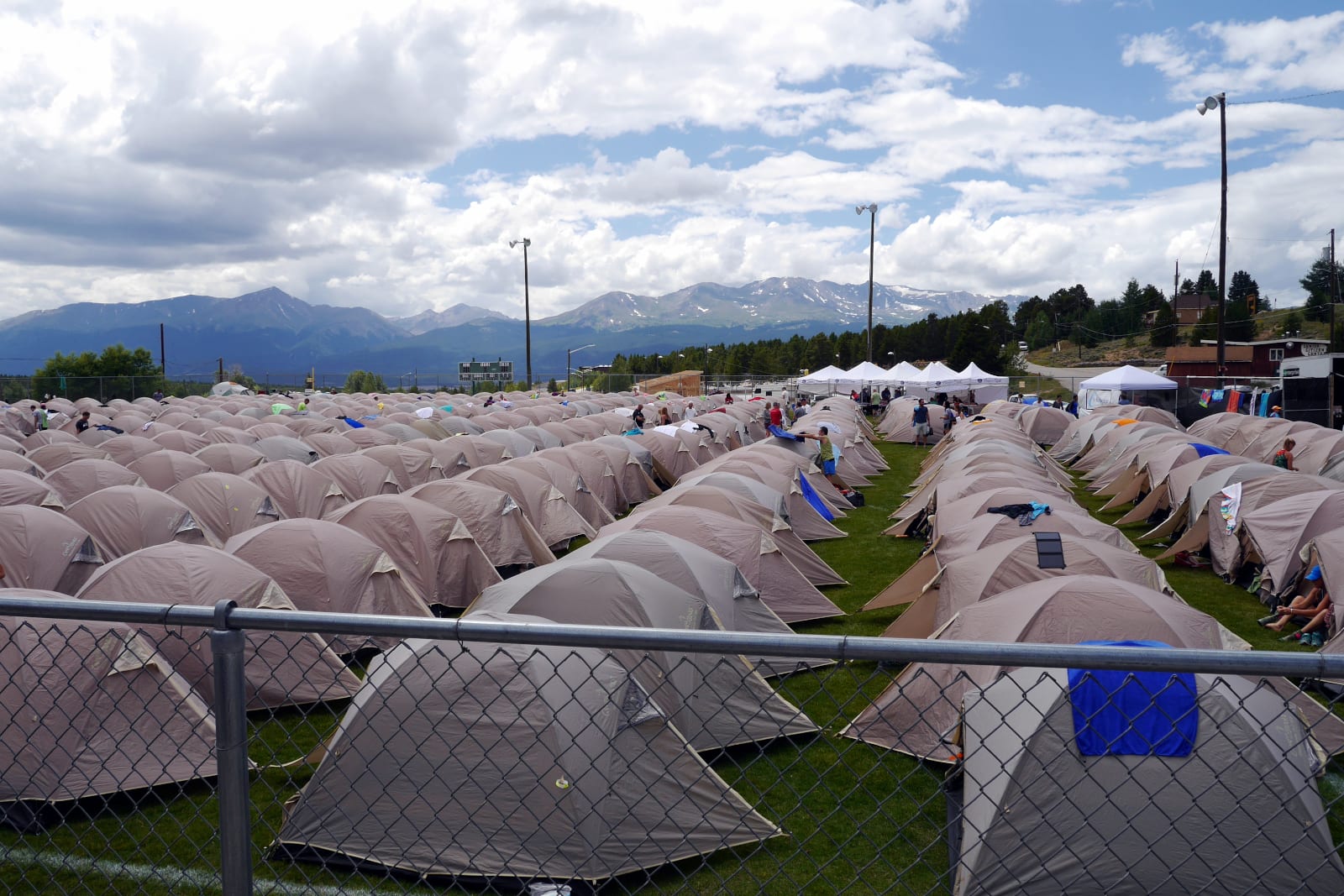
Camping can be broadly divided into car camping (including RVs), and backpack camping. When you are with your car you might be staying at a campground, or you might be “dispersed” camping, meaning you are using your car but not at a developed campsite. An example would be if you drive onto a dirt road in the national forest to camp (assuming there aren’t any “No Camping” signs!) and always use preexisting spots.
Whether you are car or backpack camping, there are two main etiquette categories: personal/social and environmental. Some of these practices are specific to one or the other type of camping, but most are considerations we can all be thinking about, wherever we are and however we got there.
Here are some camping tips and rules that you really should follow, in no particular order:
Personal & Social Camping Etiquette
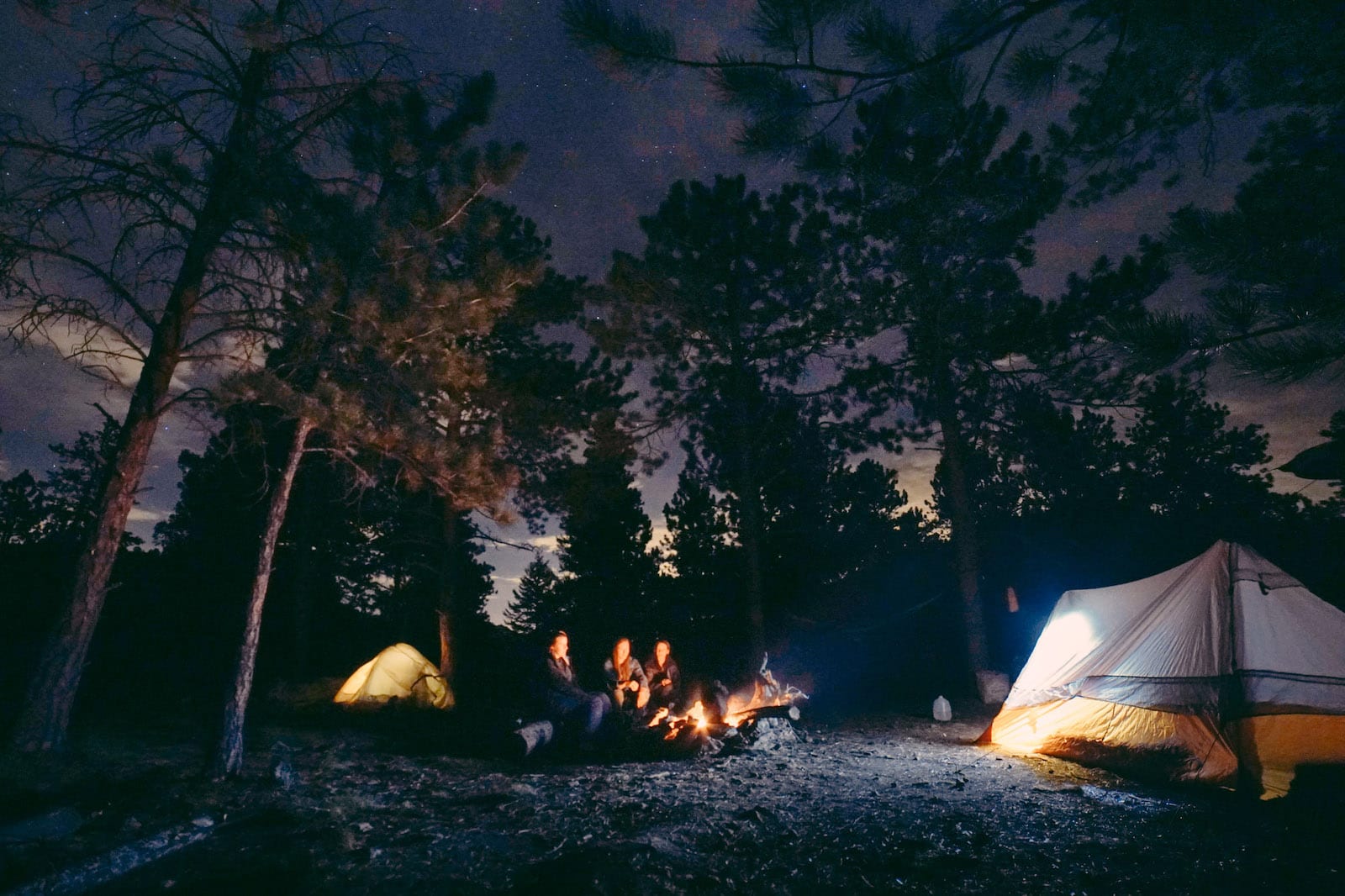
Noise.
Whether you are camping in a campground or out on a trail far from civilization, please consider the noise you make near others. Shouting, talking too loudly or playing loud music, using speakers, etc. can be hard for your neighbors. Hearing natural sounds in the outdoors is one of the greatest things about camping.
When we overpower the natural sounds, not only does everyone within earshot hear, but we can’t hear things like the wind in the trees, singing birds, bugling elk, a running stream, or any of the myriad wonderful sounds that camping allows access to. And at the very least, keep it down after about 8 PM and before about 6 AM—people go to bed early out in the fresh air!
Generators.
These get their own category. No one will be backpacking with a generator, but people like to have them in campgrounds and in their cars (those daiquiris aren’t going to make themselves). Please use generators wisely, sparingly, and only in the middle of the day. There is truly nothing worse than having a generator be the first sound you hear in the morning or the last sound you hear at night while you are drifting off watching the Milky Way.
Spacing.
If you are not in an assigned campsite at a campground but you are either out doing dispersed camping or on a backpacking trip in the wilderness, please give everyone some space! In some places, you have to camp close together, but in most areas, there is plenty of room and it’s nice to give everyone some of it. It’s possible people feel more secure when they put their tent right next to someone else or pull their car in next to another camp, but it can be pretty annoying to people who are trying to get away from it all.
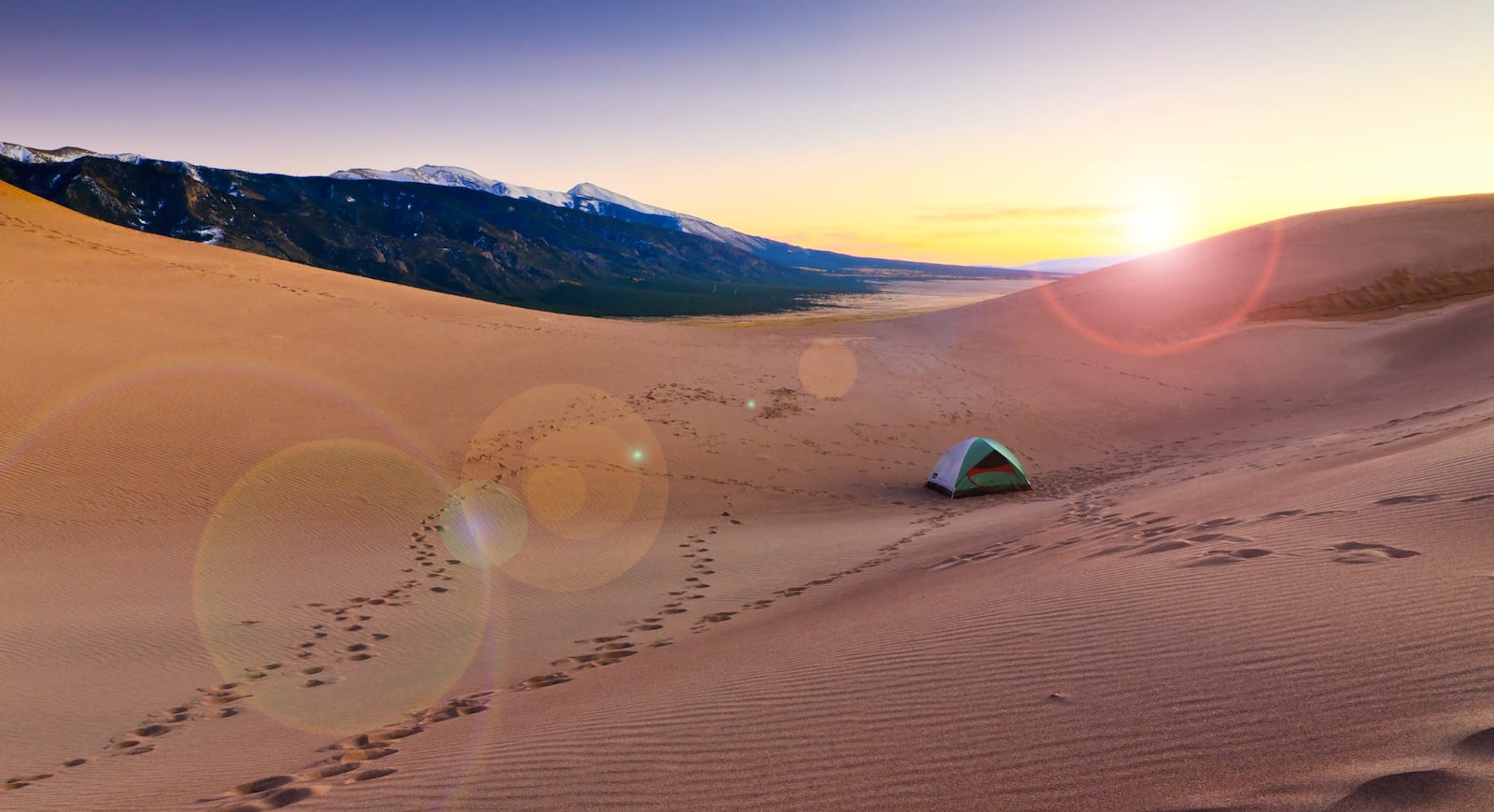
Coming in Late, Leaving Early.
This kind of gets to the noise issue, but if you are coming into a camping area late or leaving early, please do your best to keep your noise level down, your lights low to the ground so you don’t illuminate someone’s tent, and your activities to a minimum. People are sleeping (or trying to) and it’s good to respect that.
Dogs and Children.
There is nothing better than camping with your fur babies and your kids. We need to get more kids out in the outdoors so they can appreciate it and not fear it. But at the same time, please make sure that both kinds of children aren’t harassing other campers and wildlife, or barking or screaming uncontrollably.
Remember that a lot of your neighbors are out there to experience the place without those distractions. And if your dog is prone to running off or running up to people, please keep him on a leash. Everyone thinks their dog is the best dog in the world, but it can be scary for another person to have a strange dog come running at you full tilt.
Leave the Place Better Than You Found It.
You may have shown up to a campsite that had trash in it, or it was in some other way negatively impacted by the people who came before you. It’s easy to gripe but not do anything; a great thing to do is just clean up what you found and help make the site look better than it was when you got there.
If we all do this, no one will ever enter a campground or a campsite that looks anything other than pretty darned unspoiled. It’s kind of fun to get the kids involved in picking up “micro” trash—little bits of garbage. You can make it a game and whoever picks up the most gets a prize—ice cream when you get back to town!
Environmental Camping Etiquette
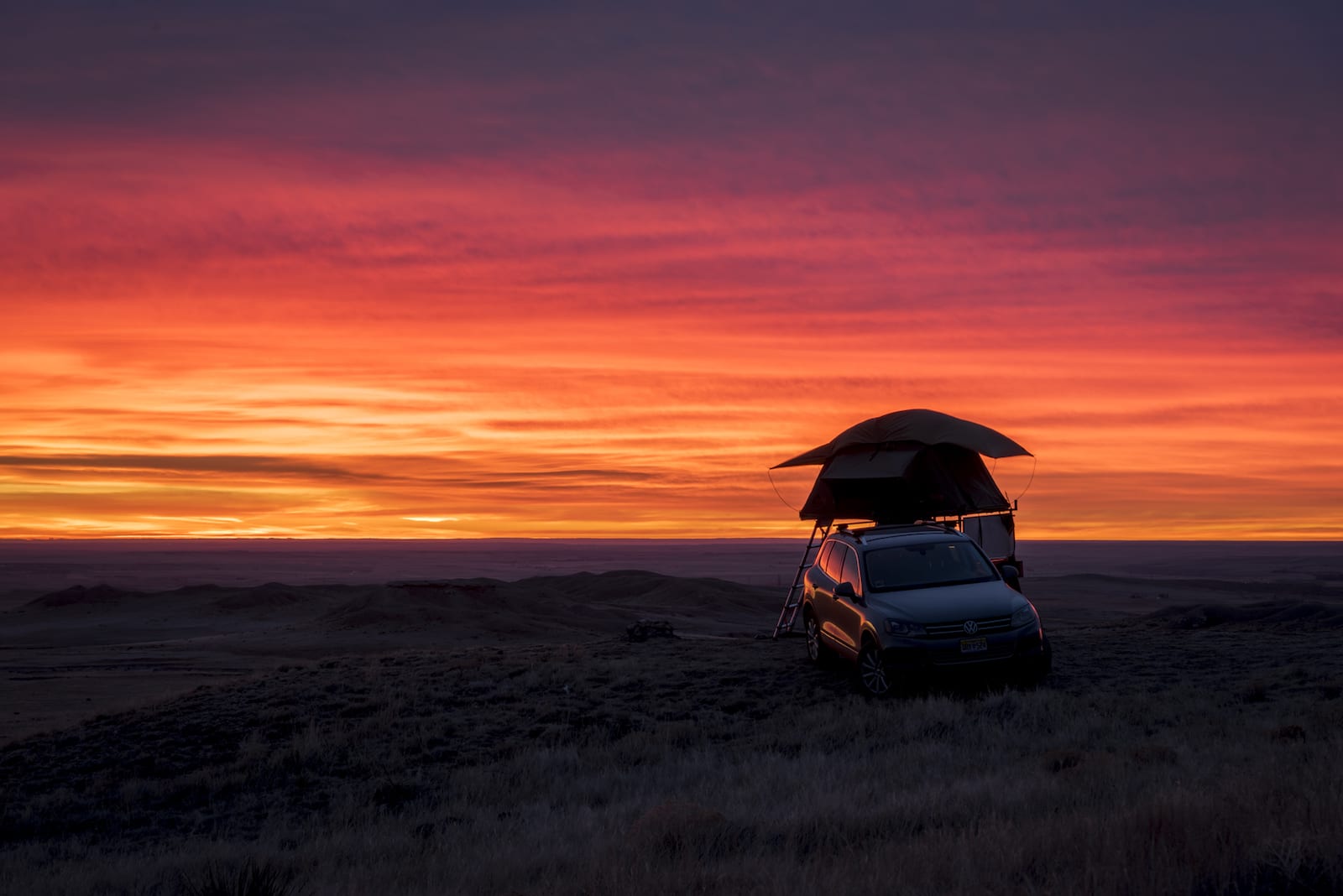
Camping Near Water Sources.
This is more of a concern for backpackers, but some dispersed camping and even campgrounds have streams, lakes, or springs nearby. These water sources not only provide life-giving water to plants and animals, but they are also part of the watershed used by humans in nearby towns (not to mention campers during their travels). It is incredibly important not to pollute these water sources.
Camp at least 100 feet away from a water source (more if the managing agency recommends it). Don’t wash your dishes or dump food in them. Don’t defecate, wash your body with soap, or throw garbage in them. Colorado has some of the most beautiful rivers, streams, creeks, lakes, and springs in the West. Everyone should be part of protecting them.
Camping on Durable Surfaces.
When you are not in a campground, but are either backpacking or dispersed camping in your car, look for durable surfaces or previously impacted surfaces to camp on. It’s lovely to camp in that alpine meadow that looks like something out of the Sound of Music, but if there is a place that has already been used and impacted, please camp there. Some fragile alpine or desert plants can take more than two years to bloom, and even one night in a tent on top of them can kill them.
They have a hard enough life already without us laying on them. Also, repeated walking on these plants will kill them, and recovery can take hundreds of years. If you camp on smooth rock outcroppings (which are awesome), sand, pea gravel, pine needles, or exposed dirt, that’s better than on living plants.
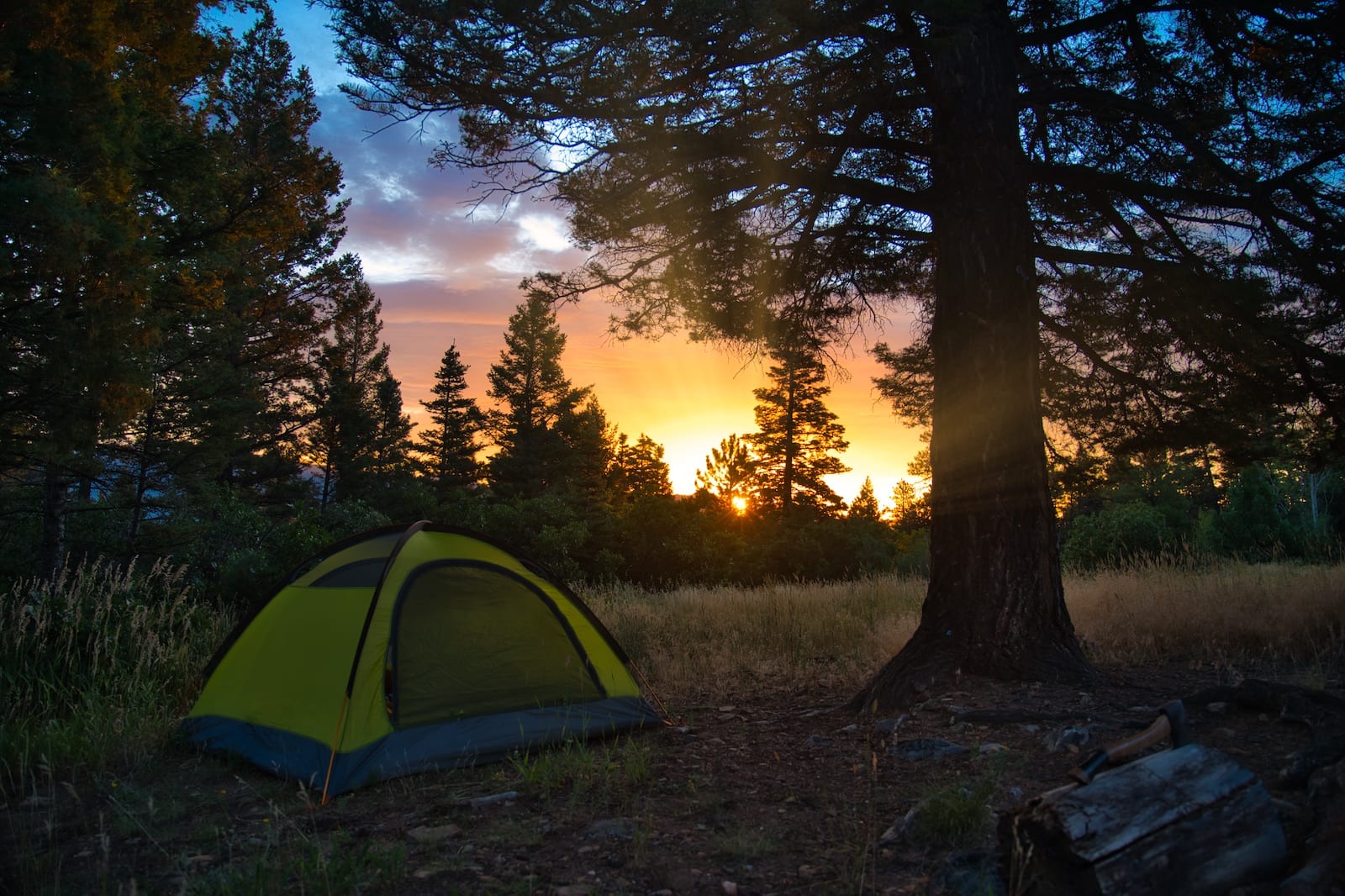
Keep the View Wild.
It’s nice to put your campsite out of the main viewshed so that others who arrive see a “wild” view, as opposed to your tent. Camping on the edge of meadows or clearings instead of right out in the middle is the best.
Modifying Your Campsite.
Don’t dig trenches or level your campsite, cut down tree branches that are in your way, or move rocks that are partially buried in plants. These are little mini-ecosystems, and moving these rocks or logs can harm the critters that rely on them and help speed erosion. If you simply must move things to camp, replace them when you leave. The best thing to do is pick a camp that you can use as is.
Bathroom.
Don’t pee in the water you are camping near. Don’t poop in that water. Dig a hole at least six inches deep to poop in, at least 100 feet from a water source. Don’t bury your toilet paper. It doesn’t decay, and animals tend to dig it up. Don’t burn it either. Many a forest fire has started from well-meaning campers burning toilet paper. Carry it out with you. It’s your poop; you can carry it out. Someone else shouldn’t have to.
Dogs (again).
Dogs can have serious environmental impacts on the land and wildlife. Please don’t let them chase wildlife; even if they don’t catch a squirrel chipmunk or marmot, it is incredibly stressful for that animal and can have negative impacts. Also, please pick up your dog’s poop. Ewww, you say? Yeah, it’s kind of gross, but imagine how it is all over the land.
If you’re car camping, you can easily pick it up and put it in your trash. If you’re backpacking, your dog likely has a backpack you can put the bags in. And if your dog doesn’t have a backpack, consider getting one; they’re super cute—and useful! They carry both their food and their poop and you don’t have to. And for heaven’s sake, don’t just bag your dog’s poop and leave it on the side of the trail. Someone else should not be picking that up and carrying it out.
Trash.
It’s pretty simple: wherever you are, don’t leave any trash. Pick up other people’s trash. Trash can clog watercourses, be eaten by wildlife, and cause harm, and pretty much just isn’t ever good. Don’t leave trash behind, and that includes in a campfire ring. More on that later.
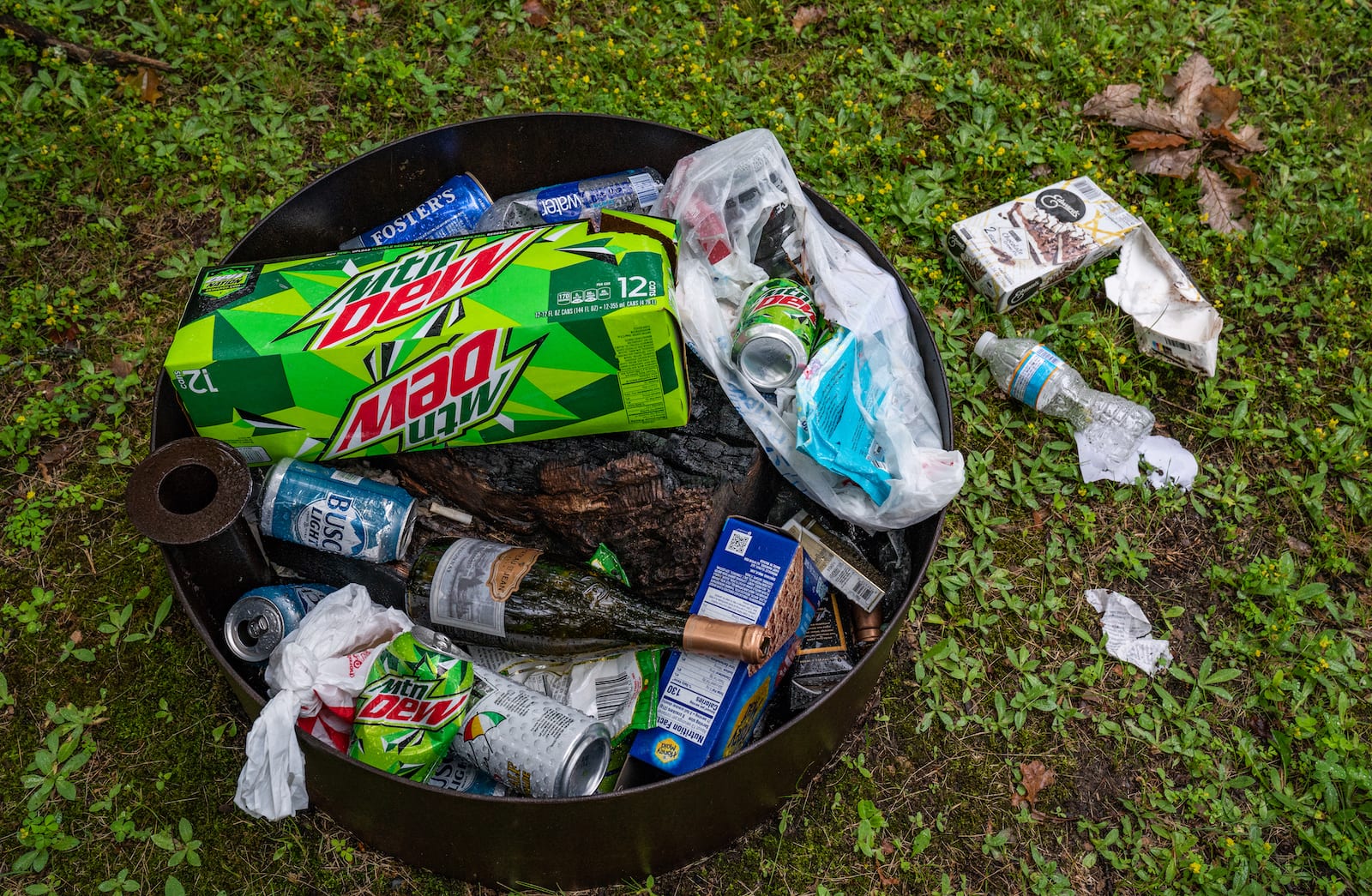
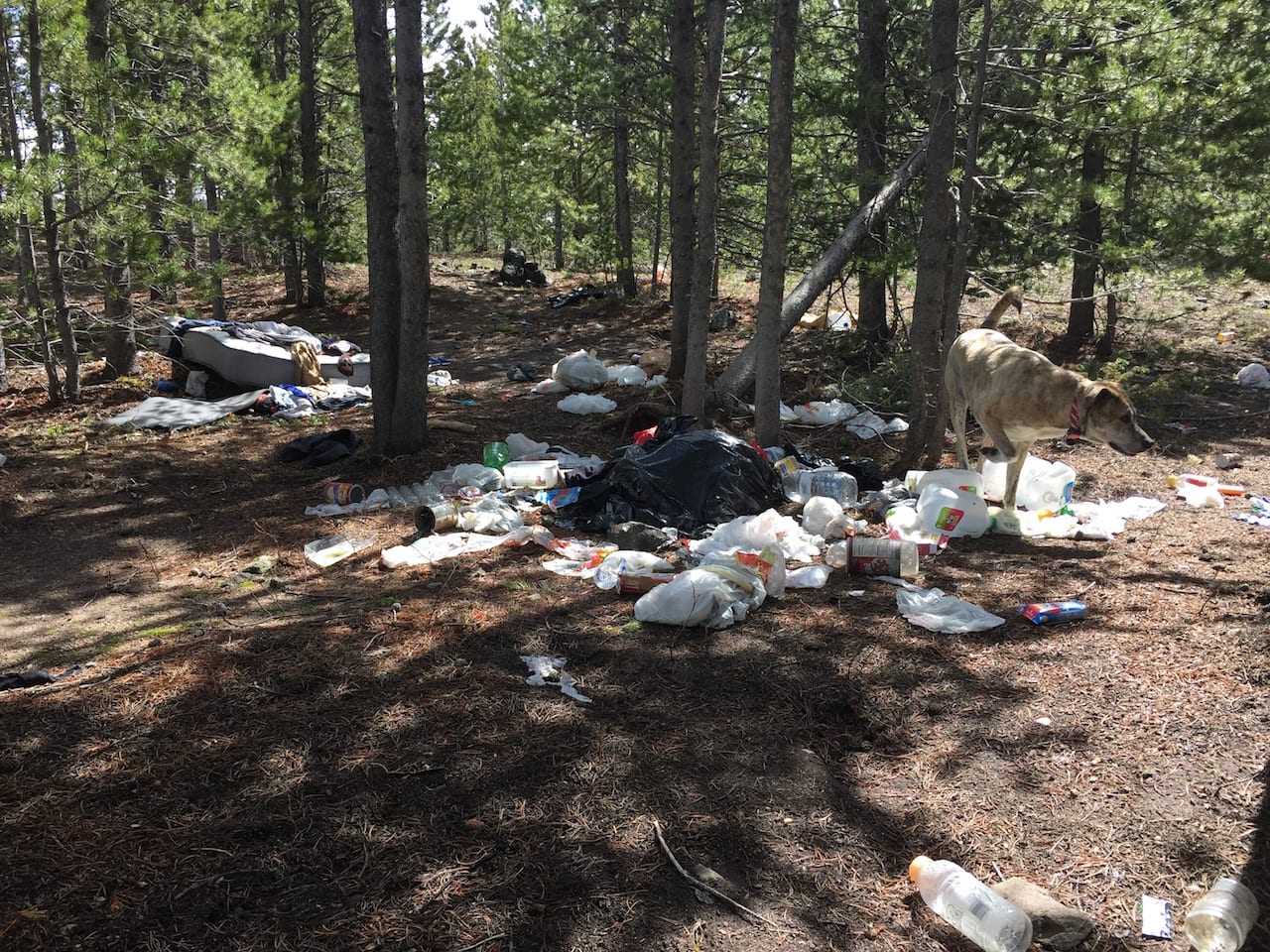
Food Storage.
The key here is to make sure no wildlife gets to your food. Wildlife can be something as small (and destructive) as a mouse or something as large (and destructive) as a bear. Whether you are camping out of an RV or a backpack, don’t leave food out!
It’s bad for wildlife; habituates them to humans and perpetuates the “Ooh! Humans have good food!” cycle; can lead to dangerous encounters between humans and animals such as bears (which never end up going well for the bears); and at the very least you lose all that food you were planning on for your week-long trip into the Rockies.
If you are car camping, keep your food in your car in as odor-proof a container as you can find (something like an ActionPacker (affiliate) is pretty good). If you are backpacking in an area where there are no bears, think about using something like a Ratsack (affiliate) to keep mice and other smaller creatures out of your food. And if you are camping where there are bears, you want to use either a bear canister or hang your food. Learn the best way to hang food to be bear-safe; there are some great videos on YouTube about methods for hanging food in Bear Country.
Feeding Animals.
Please don’t. It’s super cute when a chipmunk comes up to you and begs, right? It’s so hard to resist. But our food isn’t good for these guys, and all we are doing when we feed them is habituating them to begging, making them more aggressive (resulting in more unpleasant human-animal encounters), and once again damaging that interface between us and the natural world. If you camp in an area where animals are known to be accustomed to humans (for instance, the mountain goats in the Chicago Basin), the best thing you can do is ignore them or even chase them away.
Wood Cutting.
Don’t take limbs off trees, or take down dead trees. They are important habitats for wildlife. Unless you are out with a permit to cut firewood, don’t cut firewood.
Campfires.
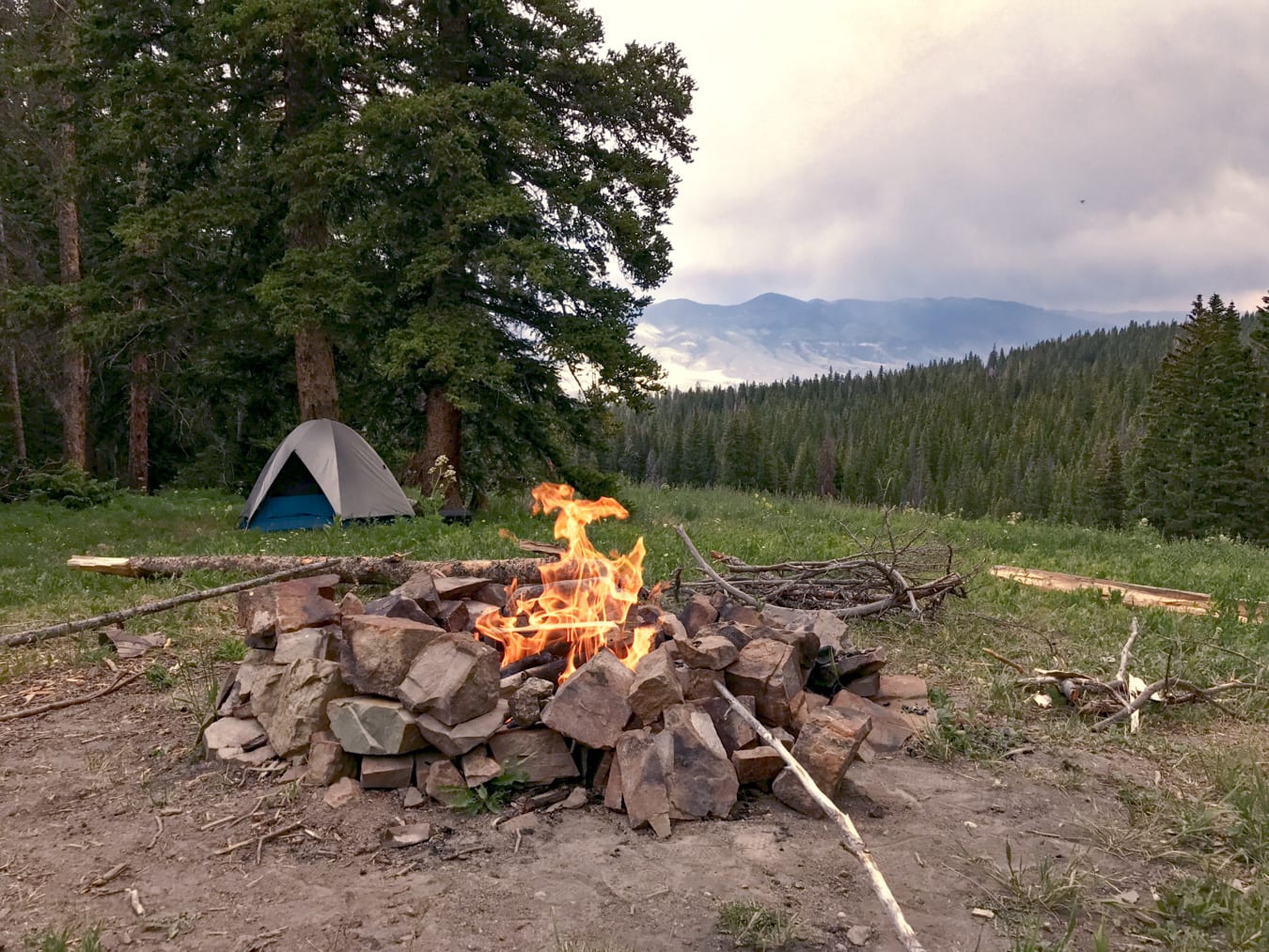
Colorado has millions of acres of forest, grasslands, sage flats, and pinyon-juniper woodland. All of it can burn. Please pay close attention to the rules where you are and if there is a campfire ban, don’t have a fire. I know: that having a fire is essential when you are camping out. How else do you make the s’mores? But it boggles the mind how easy it is to start a wildfire in this landscape. If you are allowed to have a fire, make your firepit on a durable surface, like bare dirt or rock. Better yet, use one that’s already there. Don’t build an enormous fire that you can’t control easily. PUT YOUR FIRE OUT WHEN YOU ARE DONE!!
Every year wildfires start from supposedly dead campfires that have been “put out.” To properly put out a fire, you need a lot of water, and to stir the coals with the water until there is no steam rising from the pit. If you can’t stand on it for minutes with bare feet, it’s not out. Oh, and don’t leave garbage in your firepit, assuming the next person’s fire will burn it up. It’s icky and bad for wildlife.
Protect and Share the Land
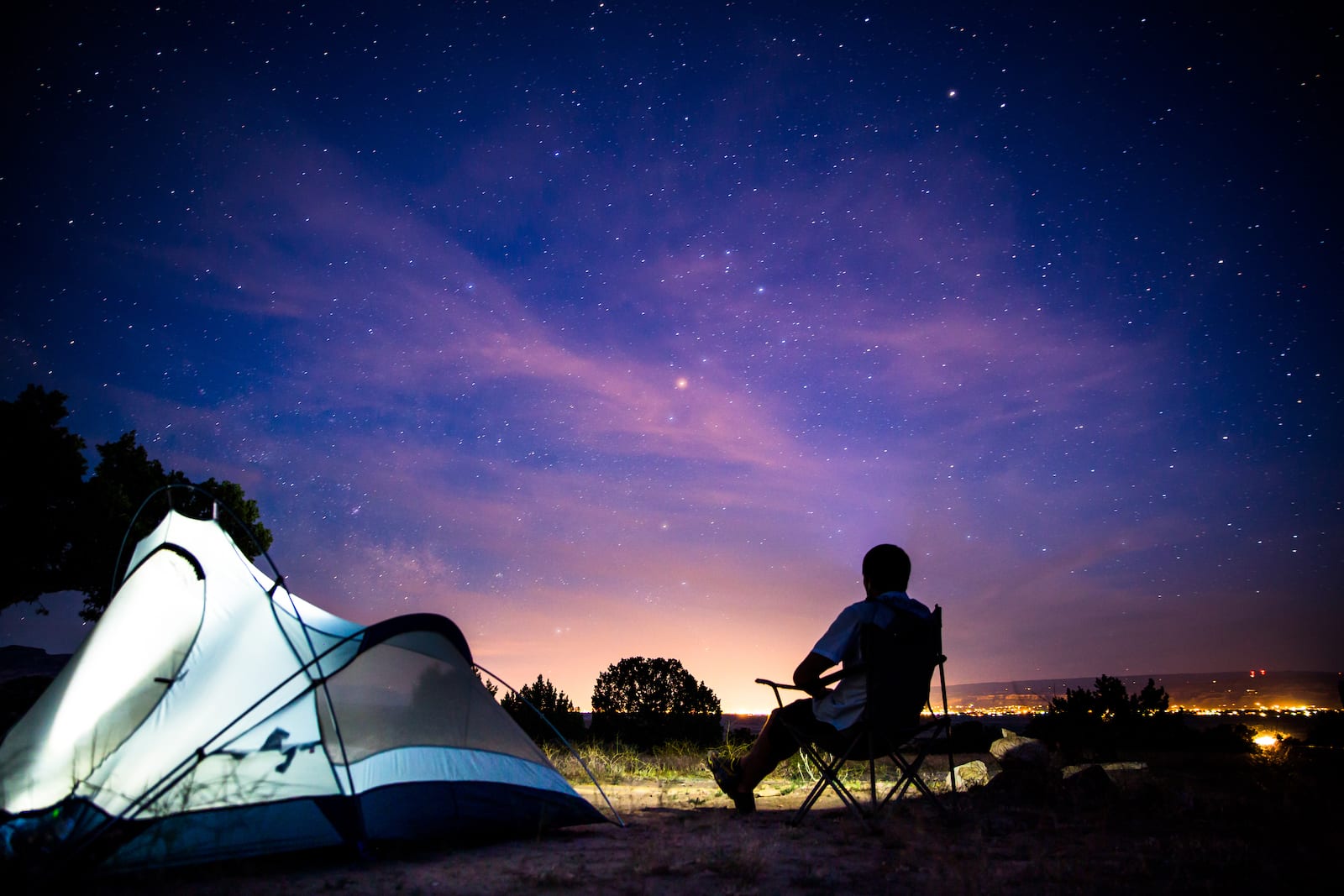
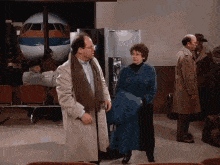 One of the best sources for learning how to camp without hurting the landscape is Leave No Trace (www.lnt.org). Take a look at the website for whichever agency manages the land you’ll be in, be it the National Forest Service, National Park Service, Bureau of Land Management, or the State of Colorado.
One of the best sources for learning how to camp without hurting the landscape is Leave No Trace (www.lnt.org). Take a look at the website for whichever agency manages the land you’ll be in, be it the National Forest Service, National Park Service, Bureau of Land Management, or the State of Colorado.
These agencies often don’t have enough money to send personnel out onto the land, so all visitors must work to protect our camping areas—front- or back-country. This same etiquette goes for hiking too, plus other rules for the trail.
We all love this land and want to be out on it and have our own unique experiences. So we all are responsible for making sure it is protected and healthy and that everyone’s Colorado experience is the best it can be.
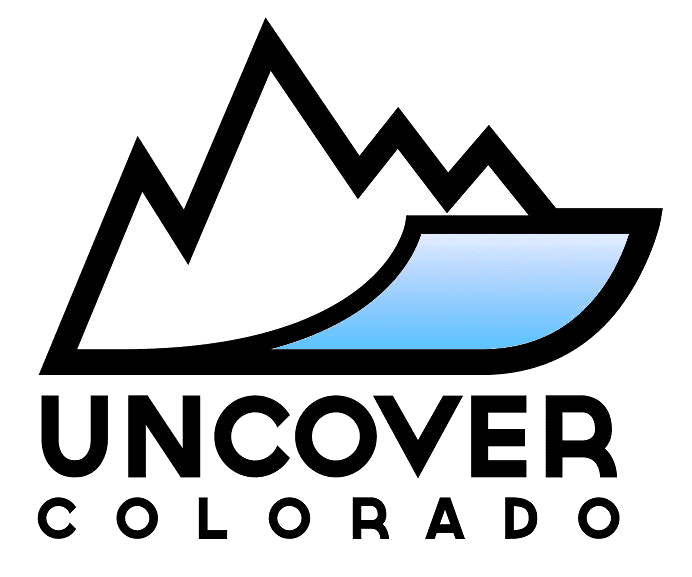
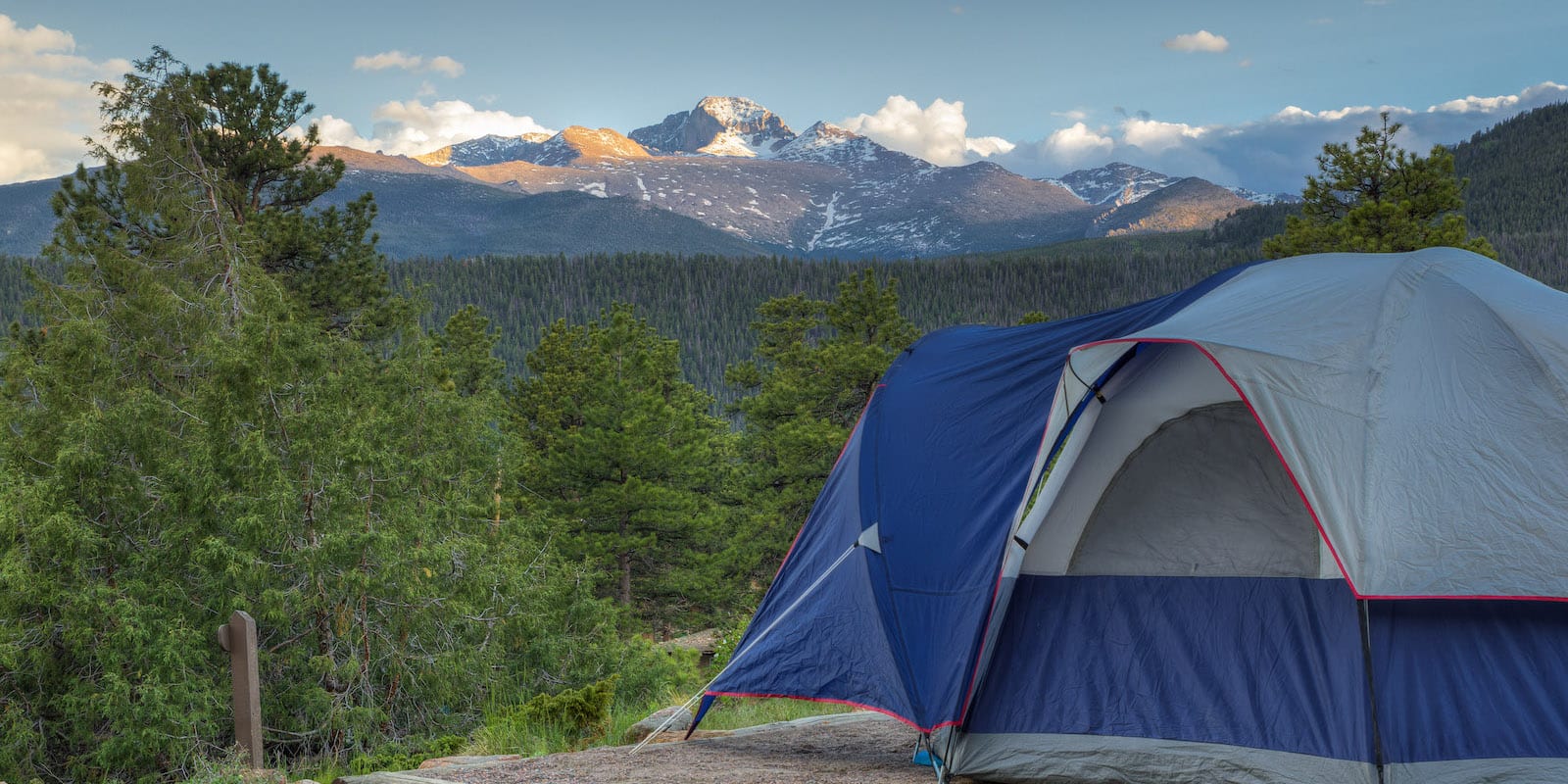
 Cool Off at 8 Colorado Swimming Holes
Cool Off at 8 Colorado Swimming Holes